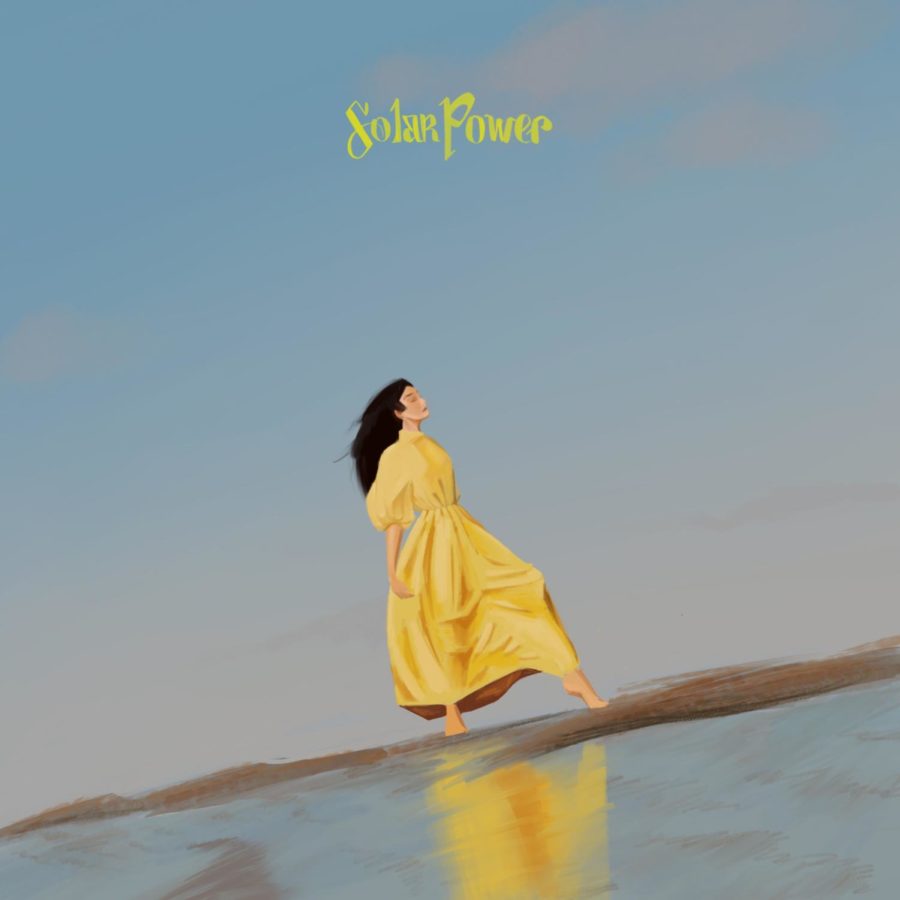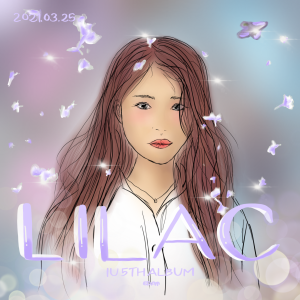Lorde’s new album “Solar Power” is filled with sunlight and sand, but not much else
Lorde’s latest album “Solar Power” is imbued with the late summer sun, but fails to convey a cohesive message.
September 24, 2021
Lorde’s highly-anticipated third full album, “Solar Power” leaves listeners with the intense feeling of basking in the late summer sun, attempting to bring us along on her journey to self-awareness and serenity. The album, released on Aug. 20, 2021, is the product of her experiences in the past four years.
The 24-year-old singer-songwriter swaps out the moody and emotionally raw tones of her 2017 album “Melodrama” for a lighter, acoustic-packed sound. It’s a complete turnaround from her signature style, but remains a reflection of her own self-awareness. Still, the airy nature of this album doesn’t seem to adequately support the multitude of topics she tries to discuss.
“The Path” serves as a good introduction to the album, effectively conveying Lorde’s reasons for making it in the music industry. She immediately gets to work addressing her rise to fame at a young age (“Teen millionaire having nightmares from the camera flash”), and the fact that she doesn’t want to be looked up to as a role model (“Now if you’re looking for a saviour, well, that’s not me”). She then goes on to redirect listeners to nature (“Let’s hope the sun will show us the path”), which seems to be the overarching theme of the album. In the background, we hear mellow instrumentals and a barely-there percussion that thankfully gets stronger up towards the latter half of the song.
As the title track of this album, “Solar Power” isn’t the sunlight-to-energy tune you might expect, instead taking a more literal approach and describing the blissful and healing “power” of the sun. It starts off with Lorde’s whispery vocals and, similar to the previous song, picks up closer to the middle. The repetitive chanting of the words “solar power” is also quite reminiscent of “The Path,” and therefore doesn’t let the song stand out. What does stand out, however, is Lorde’s impressive lyricism. She sings about herself: “cheeks in high color, overripe peaches,” and the water: “acid green, aquamarine,” painting a picture so vivid I can see myself standing on a beach alongside her.
“California” is a song that has Lorde yet again renouncing her early experiences with fame, this time along with the state that brought them to her. It places her voice front and center, and the minimal piano and drums make sure it doesn’t get lost. This is especially important since it showcases her clever allusions to different aspects of California, as she sings about saying goodbye to “ all the bottles, all the models / Bye to the clouds in thе skies that all hold no rain.” The track is gorgeous through and through, and is easily one of the best parts of the album.
“Stoned at the Nail Salon” and “Fallen Fruit” are both lyrically-strong songs, with the former talking about the importance of slowing down life and the latter being the environmentally-conscious track that we were all anticipating. However, “Stoned at the Nail Salon” is so stripped-back that it hardly feels like a song. “Fallen Fruit” is much the same, and while it does get to be more interesting during the third verse, the song ends with a series of beeps that give me the urge to go check my oven more than anything else.
“Secrets from a Girl Who’s Seen it All” is a track with lyrics that don’t seem to fit the theme of the album at all, and a melody that does so perhaps a little too much. The song feels like Lorde’s attempts to give the listener advice, but comes off as preachy and not quite relatable enough to be effective. The echoey and repetitive vocals are starting to sound a little stale at this point in the album, and the spoken outro by Swedish pop artist Robyn feels contradictory and unsuitable to the song.
Lorde chooses to introduce yet another topic in “The Man with the Axe,” and it’s the romance that I haven’t actually felt the absence of so far into the album. The track is an intensely personal ballad, one that almost feels too intimate to intrude on. “You felled me clean as a pine / The man with the axe and the look in his eyes,” she confesses. Perhaps the song is a bit sleepy, but the ending makes the whole song worth listening to — taking on a dreamy quality that helps the yearning emotions shine through.
“Dominoes” is a track that does have potential, in a catchy tune that makes the beginning of the song enticing. However, the lyrics about “Mr. Start-Again,” a man who gets endless chances after every mess-up, doesn’t suit the cheery tune at all. This song is followed by “Big Star,” a melancholy-sounding piece that reads as a love song but is actually dedicated to Lorde’s dog. Both tracks are vague and seem to muddle up the direction of the album.
As a short interlude, “Leader of a New Regime” takes the album into dystopian territory. It almost serves as an extension to “Fallen Fruit,” and through the Spotify Storyline feature for this song Lorde explains that it is “set in a distant or not-so-distant future, one where the environment is unlivable, society has broken down and we’re all escaping to our far-flung natural sanctuaries to start again.” It seems like Lorde is already there, light-years ahead, and she’s just waiting for the rest of us to catch up.
“Mood Ring” lets Lorde introduce an element of satire that the album was sorely lacking. She pokes fun at society’s newfound fascination with wellness culture, and the superficial ways in which people try to feel grounded and connected to the world: “Ladies, begin your sun salutations / Transcendental in your meditations (Love and light) / You can burn sage and I’ll cleanse the crystals.” The song itself incorporates a catchy drum beat and buoyant acoustic arrangement to give it a more solid structure and melody than any others on the album. After a series of unremarkable songs, “Mood Ring” catches the listener’s attention just in time for the finale. Though the commentary isn’t quite biting enough to be perfectly gratifying, it’s definitely one of the highlights of the album.
To close out the album, Lorde revisits the beachy breeziness that was so strong during the first few tracks. “Oceanic Feeling” is a six-minute song that evokes just that, an expansiveness that is both wistful and clarifying. She bounces around a little between contemplating her future and her pas, eventually returning to the theme of stepping away from her celebrity status, “Now the cherry-black lipstick’s gathering dust in a drawer / I don’t need her anymore,” she sings, as a reference to her 2013 album “Pure Heroine” that started it all. The inner peace and self-awareness that she’s found is almost tangible here, and a perfect way to finish off the album.
“Solar Power” is an album that marks Lorde’s reinvention of herself, both as an artist and a person. But the repetitive sounds and competing themes give off the impression that she’s trying for too much and too little at the same time. For fans used to her gritty, intense style, this album misses the mark and is consistently unsatisfying. At the end of it all, the solar power feels nowhere as electrifying as expected.






